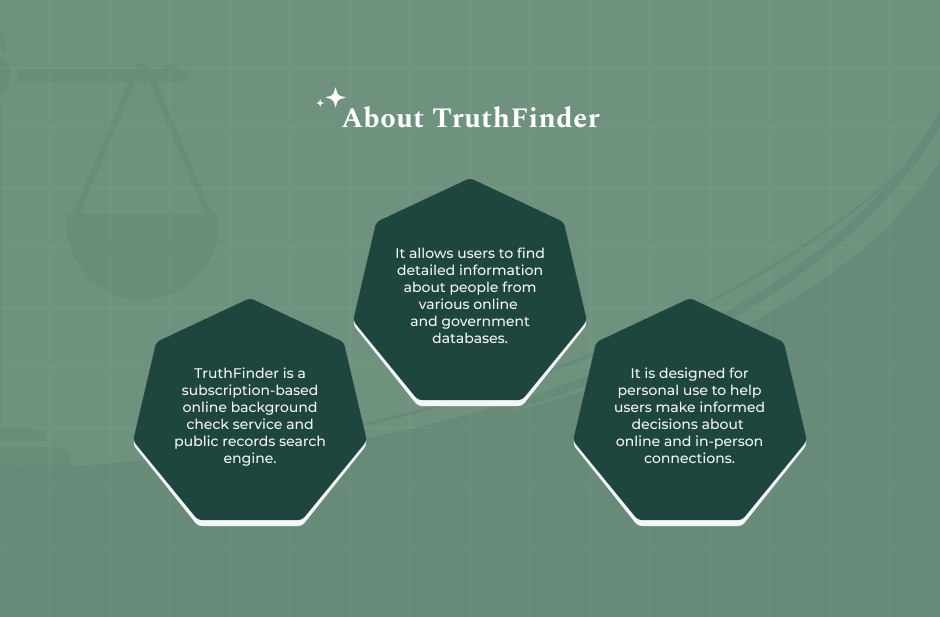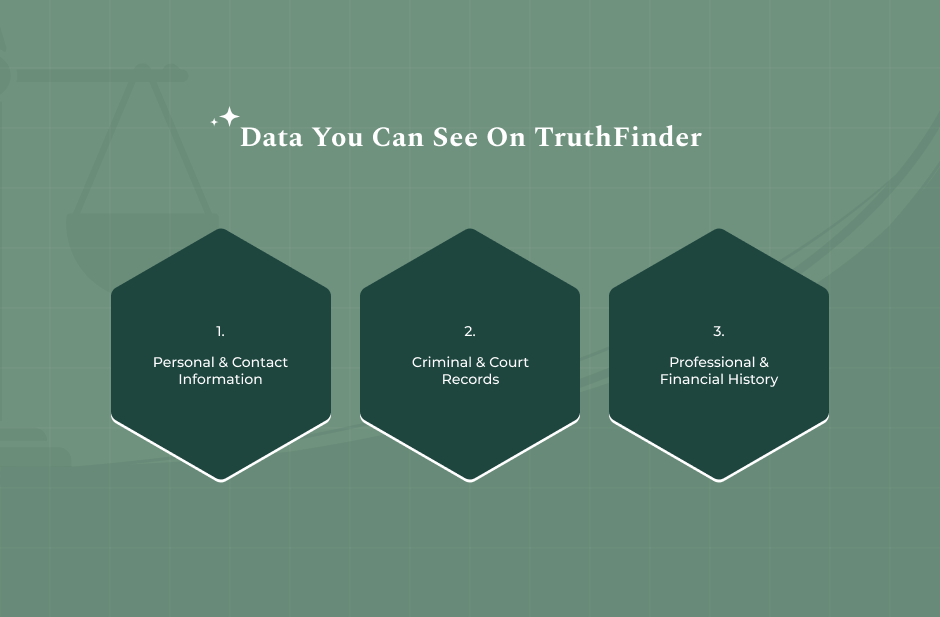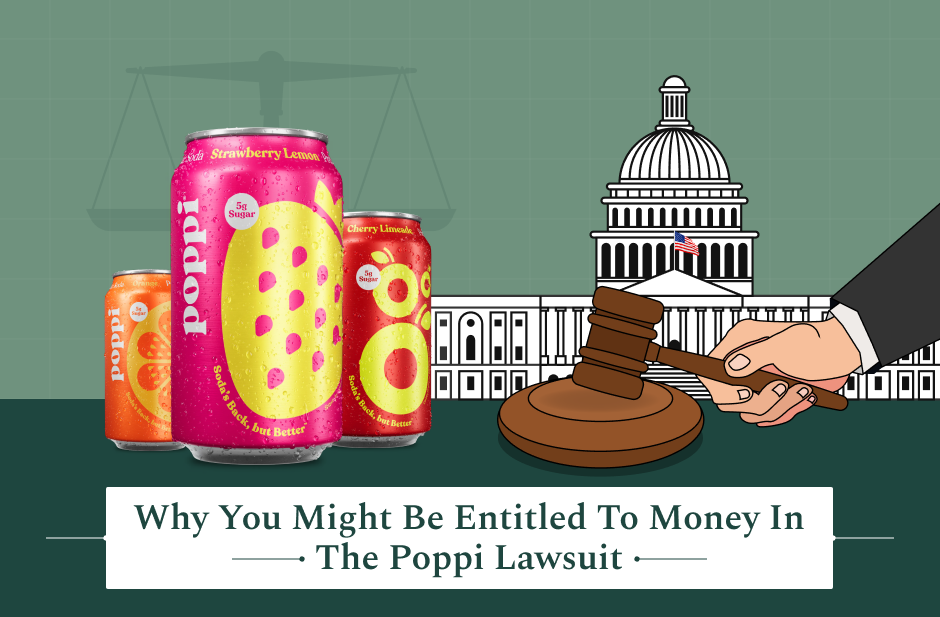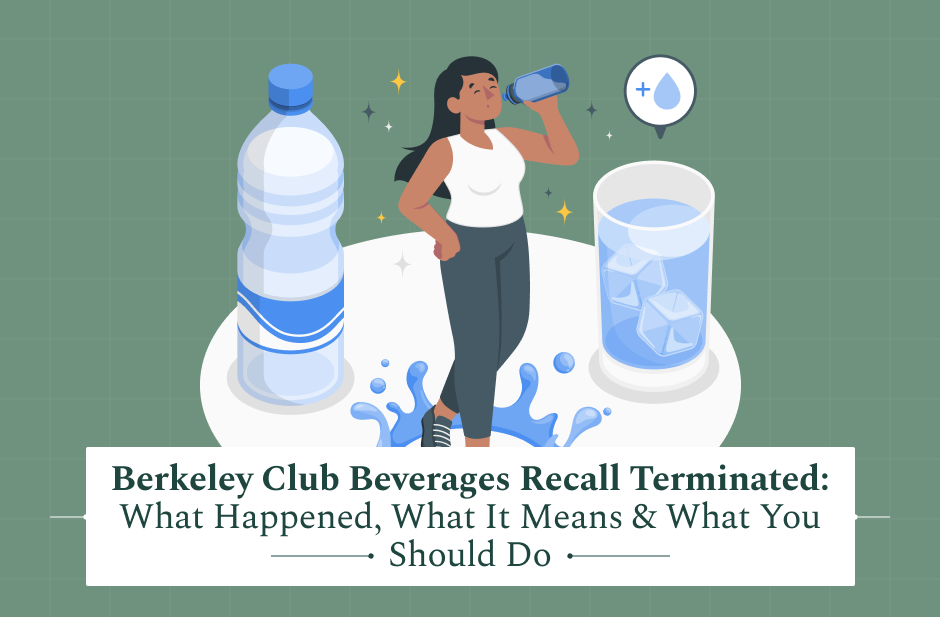It is very probable that your private data are kept in many different databases and public records — TruthFinder simply facilitates the search.
In a way, background check services like TruthFinder come in handy for those who wish to acquire more information about others.
Interestingly, a survey published by The New York Post recently found out that almost 20% of singles perform background checks on their dates. The numbers might increase as TruthFinder becomes more and more user-friendly and widely known.
However, the question is: Is TruthFinder legit? Is it a trustworthy and worthwhile service for your time and money?
What Is TruthFinder?

TruthFinder is a professional service for background checks that works on a subscription basis and compiles publicly-available information about people from many different online sources. It is the service that has the ability to scrape the data from public records, social media sites, and databases of other types to issue very detailed reports about persons.
By using a person’s full name, telephone number, email address, or home address, the user is able to explore the information and might receive access to such details as contact information, criminal records, real estate ownership, and also social media profiles which are public as well.
How Does TruthFinder Work?
Ïs TruthFinder legit? Before we get to that answer, let us understand how this platform works. This is the process of how TruthFinder works:
- TruthFinder requires personal information.
- TruthFinder’s algorithms search in public records,
- TruthFinder employs scare tactics and dark messaging while preparing the report.
- TruthFinder bundles the collected personal data into a report and shows the user the match.
- You will be asked to accept a disclaimer that states the information cannot be used for any FCRA-regulated purposes, such as hiring or renting screening.
As TruthFinder does not allow for one-time report orders, you have to choose a subscription plan in order to get any information that has been retrieved.
The monthly subscriptions usually range from $4.99 to $29.73, with automatic renewal, but sometimes there are special offers that make them even cheaper.
What Data Can You See On TruthFinder

TruthFinder gives its users access to a person’s PII that is public, which includes the person’s full name, address history, marital status, employment, and property information.
The main advantage of this service is that it provides a comprehensive background report by adding such data from a variety of public records, web sources, and other databases.
Here is a more detailed summary of the information a TruthFinder report could possibly cover:
- Complete name and nicknames
- Current and former telephone numbers
- Current and old addresses
- Criminal records and arrest facts
- Social networking accounts
- Dating profiles
- Birth certificates
- Marriage and divorce records
- Work and school credentials
- Possible family members and friends
- Real estate and financial information
- Certificates and licenses
- Sex offender classification
- Car ownership history (current and past)
- Pictures (for instance, mug shots or publicly available graphic images)
It is important to remember that the information is only as up-to-date and precise as the public records TruthFinder accesses, which may be aged or have inaccuracies. But is TruthFinder legit?
Is TruthFinder Legit?
TruthFinder is a reputable company. Basically, it functions the same as any other search engine software that scans the internet for public records and databases. Once you receive your report, the information collected can usually be verified through public sources.
TruthFinder is a legally operating company but its reputation is not clear-cut. Customers have given contradictory reviews, some of them highlighting the presence of incomplete or wrong data in the reports, and expressing their disappointment since the information was not even as reliable as one would expect from private investigators.
Additionally, the customer service department has faced criticism, mostly from users who were dissatisfied with the initial reports due to inaccuracies.
Nonetheless, a group of customers has shared their favorable experiences, thus suggesting that TruthFinder can possibly cater to different needs depending on the person’s expectations.
Also, the Federal Trade Commission (FTC) has imposed a penalty on the TruthFinder company for the violation of the Fair Credit Reporting Act.
According to the regulation of the Fair Credit Reporting Act (FCRA), companies that gather personal data and sell reports for background checks should ensure that their reports are free from inaccuracies — a problem that TruthFinder has faced multiple times.
One of the strongest accusations against TruthFinder was the fact that it used to bloat its reports with findings, such as getting a traffic ticket noted as a criminal charge. According to NordVPN, even though “certain aspects of it may come across as a scam or misleading, raising concerns about the trustworthiness of TruthFinder’s services”, it is not a scam!
The FTC also mentioned that the sources of information utilized by TruthFinder are third-party data sources that do not assure the quality or accuracy of the data they provide. This directly contradicts TruthFinder’s strongholds about providing accurate reports.
Should You Use TruthFinder?
While TruthFinder is legit, you need to manage your expectations for the information you will get. The language of the content on their website (especially the disclaimers that they use) made it easy for people to misinterpret or perceive TruthFinder as completely reliable for a person’s background or history.
Nevertheless, as previously mentioned, TruthFinder is not without data accuracy problems. Hence, the information you get from your report should always be taken with a grain of salt. The perfect scenario, however, is for the TruthFinder report to be your opening for the data that you can confirm via official means.
What Are The Potential Dangers Of Using TruthFinder?
Using TruthFinder or similar online services isn’t really wrong since they just collect public info. Where things get tricky is when you try to use that info to screen tenants, check job applications, or anything else that could break the FCRA.
Don’t use TruthFinder data for legal or money stuff. If you’re trying to find old friends, TruthFinder might be okay. But if you’re after someone’s arrest record or job history, it’s better to go straight to the source instead of trusting sites like TruthFinder.
Can Using TruthFinder Affect Your Digital Footprint?
Since TruthFinder gets its info from public records, you can use it to see what’s out there about you online. If you’re curious about what the internet says about you, TruthFinder is one way to find out.
Keeping tabs on your online presence is a good idea because hackers can misuse public info. They might steal data, pretend to be you, or even sell your details to other bad people.
Read Also: Ticketmaster Data Breach: Impact, Risk, And What To Keep In Mind
Cybersecurity And Privacy Concerns Using TruthFinder
TruthFinder is a legal establishment that deals with public data. Nevertheless, they have certain issues regarding cybersecurity and privacy that are of great concern to the users who are intending to search or subscribe. The following are the major issues:
Data Accuracy And Security Risks
TruthFinder reports? They might have old, wrong, or just plain bad info, and that could cause trouble. Check out this Reddit thread—people are talking about issues like:
- Wrong info: Think wrong addresses, phone numbers, and emails.
- Confusing records: Like mistaking a traffic ticket for a crime. Plus, records might not be up-to-date.
- Outdated info: Stuff like marital status or even if someone’s passed away could be wrong.
- Fake links: That possible associates list? Could be total strangers.
Also, remember this: when you search on TruthFinder, you’re handing over your own info and credit card info to them. Their privacy policy says they grab a lot of data—like what you browse and search for. But they don’t say much about how they keep that safe from hackers.
Digital Footprint Exposure
Sites like TruthFinder show just how much of our info is out there online. These sites pull together public records to make detailed profiles, and that’s where the problem starts. If bad people can easily find your addresses, family names, or property info, you’re way more at risk for scams and phishing than you think.
Ethical Implications And Privacy Invasion
Running background checks on people without them knowing? That’s ethically questionable. Just because info is public doesn’t mean folks expect their personal details to be collected, organized, and sold off.
Misused background checks can lead to awful stuff like cyberstalking and doxxing, and they can put already vulnerable people at greater risk.
Plus, these secret background checks muddy the line between what’s public and what’s private. Scammers might grab info from sites like TruthFinder to make scams more believable and target specific victims.
Now, some argue that the paywall around these services is a good thing. One Reddit user said they were glad TruthFinder charges because if it were free, people would be looking up info on everyone, leading to doxxing and other nasty stuff.
So, while TruthFinder’s scare tactics might seem shady, at least the paywall might stop casual snooping and make it a bit harder to get sensitive info.
Opt-Out Processes
Okay, so TruthFinder does let you remove your info from their service’s database, but it’s not that simple. Usually, you have to give them personal details, which is weird since you’re trying to share less with them.
Even if TruthFinder gets rid of your profile, your info might still pop up in other public records and data broker sites. This means your TruthFinder report could come back later.
If you want to be less visible, you’ll need to keep opting out of multiple people search services and put in the effort to get your private info off the internet.
Legal Implications Using TruthFinder
Okay, so you know TruthFinder is legit, but here’s the lowdown on the legality that you always need to keep in mind. They’re super clear that they’re not a consumer reporting agency. That means you can’t legally use their reports for things like jobs, housing, credit, or insurance decisions—it’s just not allowed.
The FTC stepped in with TruthFinder to show how serious this is. If you use these reports for regulated stuff, you’re not just breaking their rules; you could get hit with lawsuits and fines.
If you’re a business doing background checks for hiring or renting, using a service like TruthFinder that doesn’t follow FCRA rules is a big legal risk.
















